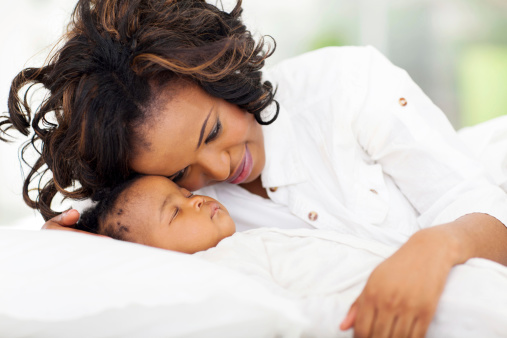When people talk about the way my daughter is “built,” how beautiful she is, it makes me afraid for her. Will she grow up to think that really matters?
I am the mother of a daughter.
If I think about this long enough, it terrifies me. How will I help her navigate a world that is so brutal for women?
This terror is magnified by the fact that I’ve struggled with my own issues of body loathing since I can remember being conscious of having a body. It’s hard to be different. It’s hard to look at magazines and see no reflection of your own body in its pages. It’s hard, as a woman, not to feel beautiful when measured against some impossible standard, even if you know the standard is arbitrary, ridiculous, and exclusionary. Most women know this to be true.
When you have a disability, as I do, this disconnect might be more pronounced, but as a friend of mine once said, “I’ve never met a woman who didn’t hate something about her body.” Although I don’t think men escape self-scrutiny, it is rarely to the intensity and frequency with which women are so familiar.
My daughter is only five months old, and even now, people comment on her beauty. Of course this pleases me, and of course, what baby isn’t perfect in his or her own way? I know that these comments and expressions of appreciation are benign, good-natured, normal.
And yet I’ve felt, since she was born, a resurgence of the old body hatred I felt as a teenager, feelings that helped me starve myself down to 90 pounds and then welcome the praise when I got to this level. How many times did I hear, between 1991 and 1993, “you’re so skinny you’re perfect?” At least twice a day; it was a regular dopamine hit. Meanwhile, by three o’clock in the afternoon I could hardly keep my head up I was so exhausted.
So now, when people talk about the way my daughter is “built,” how beautiful she is, it makes me afraid for her. For the time she’ll lose worrying about her appearance when she might have been doing something else that was ultimately more fulfilling, or that served others in some meaningful way; for the way she might nit pick the smallest thing about her body or her abilities or her life, knowing, perhaps as I have, that it doesn’t really matter and yet it feels like it matters.
I once told a therapist that I thought it was slightly easier for me, as a disabled woman, to “pass” in the world because I made an effort to stay fit, to stay within the particular, overly restrictive parameters of what was considered normal and attractive. “You’re right,” she said. “I’m sure that’s true.” I respected the honesty of her answer, her willingness to answer off book from the usual therapy speak.
I hope that Charlotte will be happy inside her body, without having to feel as though overcompensation for some real or perceived lack is her ticket to acceptance in the world, however she chooses to engage with it.
Charlotte will not lose a leg when she’s 4 years old. She will not have orthopedic operations. She will not have the issues and the physical history with which I grapple daily. She does not have Tay-Sachs as her brother did, and so she will not suffer and die in the way that he did. I try to remember this when I feel fear.
But what other beliefs will she hold about herself, beliefs that she will garner—not from me; I intend to say no negative thing about my body or hers or another woman’s body in her presence, not ever—but from the raw, immediate material of her experiences? From the politics of the playground? From the images in magazines and movies that are impossible to avoid?
When I look at her I am also reminded of all the women around the world who are abused, barred from school, demonized, and taught to believe that they are worthless, and I see my problems for what they are: straight out of a privileged world. I encountered many of these women during my time working for a relief agency, but of course many of the most marginalized voices I will never know, never hear. None of us will.
Charlotte is safe and loved. She will not be denied an education or abused in her home. In that, she is “lucky,” although I have never believed in that word. The world is a dangerous place for all of us, but even more so for women.
Does it frighten me? Yes. Does it make me want to shield her? Of course. But any parent knows that full protection is impossible, and should be, because through crisis and crucible we are often formed. What haunts me is what hers will look like. How dark and dangerous will those formative experiences be?
In the meantime, I massage my daughter’s body at night and sleep next to her and love her. I point out her feet, her ears, her nose, and I tell her she is perfect. And yes, she is perfectly made in a way that is a relief to someone who has struggled with being an outsider in the physical sense. In our home, she is the insider, the beloved one.
I can only hope that shored up by this affection, she will make her way—imperfectly, as I did, but surrounded by love.
Role Reboot regular contributor, Emily Rapp, is a professor in the University of Cailfornia-Riverside Palm Desert MFA program and the author, most recently, of The Still Point of the Turning World.
Related Links:

